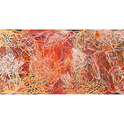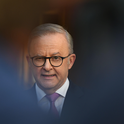Throughout 2007, Australian political commentators argued that the election was Labor's to lose. And despite a last-minute charge from John Howard's governing Liberal party, Labor swept into power with a landslide victory, claiming 53 per cent of the vote and a majority of more than 20 seats in the 150-seat parliament. The win ends 11 years of Liberal-conservative rule and heralds a new era in Australian politics. But it has also disrupted the conventional antipodean political wisdom.
A strong economy with low unemployment should have augured well for a fifth Howard term. Labor's victory has much to do with prime minister-elect Kevin Rudd. A 50-year-old former diplomat and Queensland state government bureaucrat, Rudd seized the leadership from Kim Beazley—a two-time loser against Howard in 1998 and 2001—last December. Within just six months, Labor's resurgence was such that Howard was warning his parliamentary caucus that it was facing not merely defeat but annihilation at the ballot box. Rudd's emphasis on the struggles of "working families" resonated with an electorate concerned with the unfairness of the Howard government's radical WorkChoices industrial relations reforms, and with rising interest rates.
In many ways, Rudd's political leadership remains a work in progress. Having been in parliament for only nine years, he has not had the long period of grooming on the national stage common among Australian prime ministers—Howard was an MP for 33 years. Rudd won national prominence as Labor's foreign affairs spokesman and through his dogged prosecution of the Australian Wheat Board scandal of 2005-06 (the board offered kickbacks to Saddam Hussein's regime in return for the Iraqi purchase of wheat exports). But upon assuming the Labor leadership, Rudd's views were little known, apart from those expressed in a pair of essays for "The Monthly" magazine on the German theologian Dietrich Bonhoeffer ("the man I admire most in the history of the 20th century") and on the battle between free market fundamentalism and social democracy (an unrestrained market is "blind and indifferent to its social consequences").
Rudd's lack of experience, however, has been compensated for by strategic nous and a flair for the media grab. At the Sydney Apec Summit in September, Rudd stole the limelight by addressing Chinese president Hu Jintao in fluent Mandarin during a speech (Rudd once had a diplomatic posting to Beijing and studied Chinese at university). When Howard claimed the initiative in the first week of the election campaign by announcing a mammoth $34bn tax cut, Rudd responded by matching 90 per cent of the cuts, and using the remainder to offer an education tax rebate for low-income families. Perhaps Rudd's most critical political manoeuvre, though, was to respond to a late $9bn spending pledge by Howard by casting himself as an economic conservative who could be trusted to avoid reckless spending. One can expect more of this kind of discipline from a Rudd premiership. Typically rising at 4am, Rudd practises the kind of Protestant work ethic one might expect from a man whose hero is a Lutheran pastor. A religious and abstemious man—in his acceptance speech on Saturday, he suggested he would celebrate victory with a strong cup of tea—in person, Rudd exudes an air of quiet assurance.
Rudd faces relatively few obstacles in the first days of his premiership. The Liberal party has melted into disarray; Howard lost his own seat, and his heir apparent (and former treasurer) Peter Costello has signalled his intention to retire from politics. And much like Tony Blair in 1997, Rudd assumes the mantle of prime minister owing few favours to factions or power brokers within his own party. In a departure from Labor convention, Rudd, as opposed to his party, will appoint his cabinet. And mirroring his presidential style of campaigning, Rudd is likely to run a presidential-style cabinet. In one of his first interviews after the election, Rudd said he would be "brutal" in reviewing his ministers' performance and would sack anyone who fell short of his expectations. This will not be a premiership of primus inter pares.
The landslide has given Rudd an emphatic mandate to implement his policy programme. The first item on his agenda will be the ratification of the Kyoto protocol on climate change. Rudd has said he will withdraw Australian troops from Iraq, and repeal the Howard government's WorkChoices laws. He has pledged to institute an "education revolution" to make the Australian workforce the best educated in the world (much of the detail of which remains to be finalised), and to negotiate with state governments to fix the nation's hospitals in his first 18 months in office.
We can expect a technocratic governing style from Rudd, bearing the imprint of his years as a Queensland bureaucrat in the 1990s. He is fond of referring to his commitment to an "evidence-based" approach to policy, and has already indicated that policies (and ministers) will be judged by clear "performance benchmarks." In short, Rudd's measure of a good government is its contribution to efficiency.
A Rudd government, however, might change the Australian political landscape in a different way. Many believe the Howard years created an Australia that was shrilly conservative and callous, especially towards immigrants, asylum-seekers and the indigenous. While Rudd successfully avoided being drawn into a "culture war" with Howard, his victory may yet signify an important cultural realignment for the nation. Australian progressives will hope that Rudd governs with the kind of compassion and decency he has written about.
There is another possible dimension to a cultural realignment. In Howard, Australians had a prime minister who yearned for the certainties of the "old Australia" and a "relaxed and comfortable" national identity. Rudd, however, has spoken in the language of future challenges, leaving the way open for an enlarged Australian self-understanding. To date, any discussion of vision has been concerned more with practical questions about education, climate change and infrastructure than with values and the national story. At least for now, Rudd seems to be more confident dealing with the details of policy and the machinery of government than with matters of a governing philosophy. Whether new leadership will mean a "new Australia" remains to be seen.








